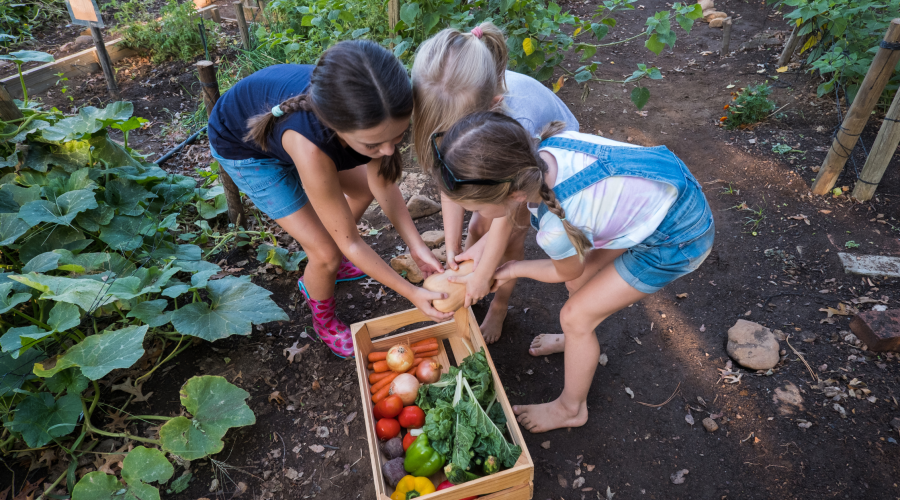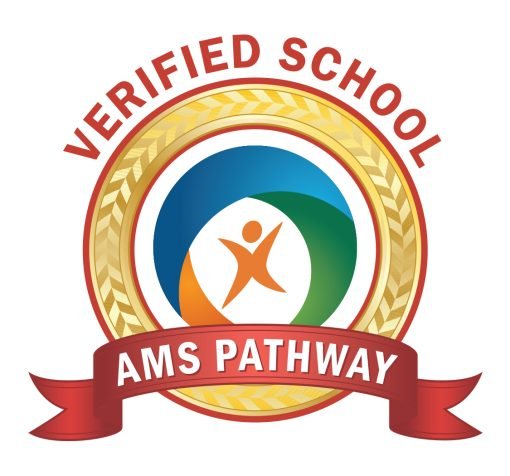Gardening can be a fun hobby for young children and adults alike. Gardening can initiate growth and connection through the work we do in nature. It helps to connect young children to the natural world, and you may be surprised to hear how this one simple activity can benefit your child throughout life!
EXPLORING THE ADVANTAGES OF GARDENING
- UNDERSTANDING WHERE OUR FOOD COMES FROM: The most significant benefit of gardening is imparting an understanding of where our food comes from. Involving children in gardening at a young age fosters awareness about food sources and nutrition.
- UNDERSTANDING THE FOOD CHAIN: Gardening helps children grasp the role of plants in the food chain, enhancing their comprehension of ecological systems.
- DEVELOPING PLANT CARE SKILLS: Engaging in gardening assists young children in learning how to grow and care for plants, nurturing valuable skills and a sense of responsibility.
- PROMOTING PHYSICAL HEALTH: Spending time outdoors through gardening offers various health benefits, including stress reduction, obesity prevention, and alleviation of anxiety.
- ENHANCING MOTOR SKILLS AND SENOSRY STIMULATION: Gardening encourages the development of gross and fine motor skills, provides sensory stimulation, and promotes physical activity, literacy, and cognitive skills.
- FOSTERING A LOVE FOR NATURE: Gardening is a fun way to involve children in outdoor activities and cultivate a deep appreciation for nature, contributing to their overall well-being and connection with the environment.

GARDENING AND OUR SENSES
Engaging in gardening provides ample opportunities to explore nature with all five senses, promoting a lasting connection with the natural world. The kids at Montessori House for Children and Elementary School have the opportunity to do this in our very own gardens and explore at least one form of sensory stimulation daily.
- Touch: plant textures, soil, worms, stems, leaves, seeds, etc.
- Taste: fruits and vegetables with different tastes (sweet, tangy, sour, spicy, etc.)
- Smell: fragrances to pungent smells from different plants
- Sight: vibrant colors and shapes
- Sound: sounds from leaves, trees, seeds, bushes, etc.
Gardening provides opportunities for age-appropriate exploration and development in plant science, entomology, landscaping, soil education, seed cultivation, propagation, and more.
TIPS FOR A SUCCESSFUL START
SAFETY FIRST
Consider the area and tools needed to ensure the child’s safety while allowing them to work independently. Like in any Montessori setting, child-sized and age-appropriate activities must be carefully considered. Is the area fenced in? Is the workspace free from safety hazards? Are the gardening tools child-sized? Are the plants non-poisonous (if ingested)?
START SIMPLE
Success builds confidence and grows interest. Start with a single garden container, then move to a one-foot gardening bed.
EXPLORE EXTERNAL RESOURCES
Eventually, knowledge and resources can be acquired with the help of the local county extension office (fbmg.org), Junior Master Gardener program, community garden, 4-H, or kids garden clubs.
RESEARCH AND READING:
Another great way to encourage gardening is to read books rich in garden vocabulary and experiences about ecology and gardening.
CREATIVE WAYS FOR KIDS TO CONNECT WITH GARDENING
Depending on age, encouraging children to record journals with drawings, writings, and pictures will help develop creative writing skills and comprehension of the planting-to-harvest process.
Establishing a plant connection through gardening to food choices on their plate is a necessity of this era. Gardening creates awareness about food choices and nutrition, resulting in a greater willingness to try nutritious food grown by themselves in their gardens.


ABOUT THE AUTHOR – Lakshmi Thirumalai
Ms. Lakshmi joined the Montessori Teachers team at MHFC in 2014 after many years of teaching experience in India and the US. She has a master’s degree in management and earned her AMS Montessori Early Childhood Credential from the Princeton Center for Teacher Education in New Jersey. She is a certified Positive Discipline Parent Educator and Brain Gym instructor. Her special interest is to facilitate learning for children with learning differences.
ABOUT MONTESSORI HOUSE FOR CHILDREN & ELEMENTARY SCHOOL
Montessori House, a family-owned and operated school since 2006, provides a continuum of Montessori education for ages 16 months through 6th grade. As an AMS Verified School committed to continuous improvement, our focus on Montessori authenticity cultivates joyful, self-motivated, and confident learners. We’re not just educating; we’re shaping future leaders. Our approach fosters curiosity, independence, and self-motivated learning, valuing the whole child—emotionally, socially, ethically, and academically. Students thrive in an environment that recognizes unique talents, providing opportunities for them to achieve their highest potential. Ideal students come from families who value holistic education, embrace cultural diversity, and have a natural enjoyment for learning and self-motivation.
References:
https://www.canr.msu.edu/news/gardening_with_young_children_helps_their_development




